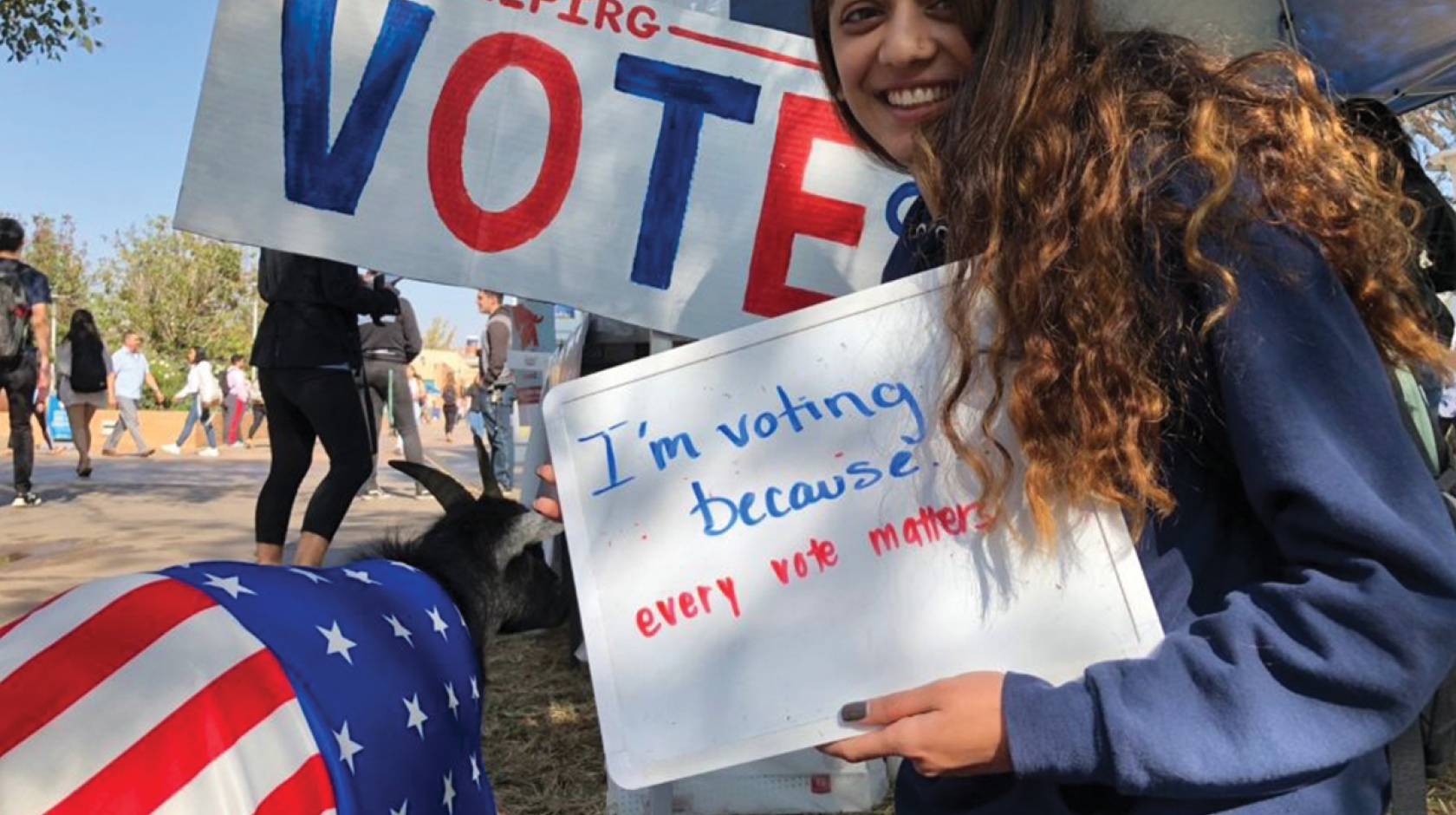Nicole Freeling, UC Newsroom

UC Riverside student Sam Roberts has a message for his UC peers: Stop leaving choices about the future to older voters.
Boomers and other older voters have a lot more political power than college-aged voters, but that’s only because they turn out to vote in such big numbers. Elections have the power to swing action on everything from global climate change to the parking ordinances in town.
“The decisions being made have a major impact on our lives, and college students need to be able to weigh in,” Roberts said.
He is among hundreds of UC students — of all political stripes — who are working to register and get classmates to the polls in time for California’s March 3 primary.

Courtesy photo
Students face a different world than their parents and grandparents, Roberts noted, and decisions being made at the ballot box could greatly affect their lives in years to come.
If that’s not enough incentive to register and vote, consider this: Millennials and Gen Z now outnumber older voters. College-aged voters could determine electoral outcomes, but only if they flex their political muscle. “We just have to show up and vote,” Roberts said.
It starts with making sure you’re registered. You can do it online right here — in less time than it takes to make popcorn.
Got questions? Here’s what you need to know.
1. Decide if you want to register at home or at school
If you’re a college student who’s living away from home, you can register at either your home address or where you’re living while at school.
Where you choose to register is a personal decision (for example, do you want to have a say on local issues around your campus?) Your financial aid won’t be affected by the address you choose.
Not sure if you’re registered? Check it here. You can also simply reregister or update your registration from UC’s registration website.

Credit: CALPIRG Students
2. Choose whether to vote in person or by mail
You’ll be assigned a polling place near whichever address you use to register, so if getting there will be difficult on Election Day, you can select the option to vote by mail.
You’ll receive a mail-in ballot a few weeks before the election that you can drop in the mailbox, at dedicated mail-in ballot drop boxes available on each campus, or at any polling place before 8 p.m. on Election Day.
3. Make sure you’re eligible
In general, you need to be 18 years old by Election Day and a U.S. citizen (in addition to some other requirements).
Need to check if you’re eligible? See who can vote in California.
If you aren’t eligible, there are still many ways to get involved with local political and get-out-the-vote efforts. Check with your local Associated Students of the University of California office or campus affinity groups.
4. Pick a political party … or choose not to
About a third of California voters register as “No Party Preference,” meaning that they are not affiliated with any particular political party. You can, too. Just be aware that it will limit your choice of ballots in California’s March 3 primary. The Green, Peace and Freedom, and Republican presidential primaries are open only to voters registered with their respective parties.
The Democratic Party, the American Independent Party and the Libertarian Party all allow No Party Preference voters to request their party’s presidential ballot in the March 3, 2020 presidential primary election.
5. Now do it!
Using the Rock the Vote form available on the UC website is one of the quickest, most convenient options.
But you can also register by mail (contact your county elections office) or in person (sometimes on campus, at the DMV or local election office), if you prefer.
And remember to vote on March 3, 2020 in the California primary!

Credit: CALPIRG Students

